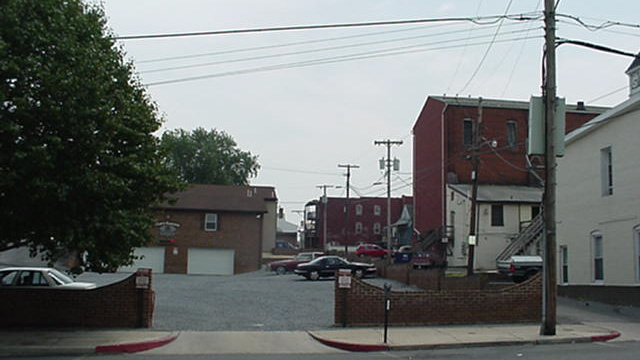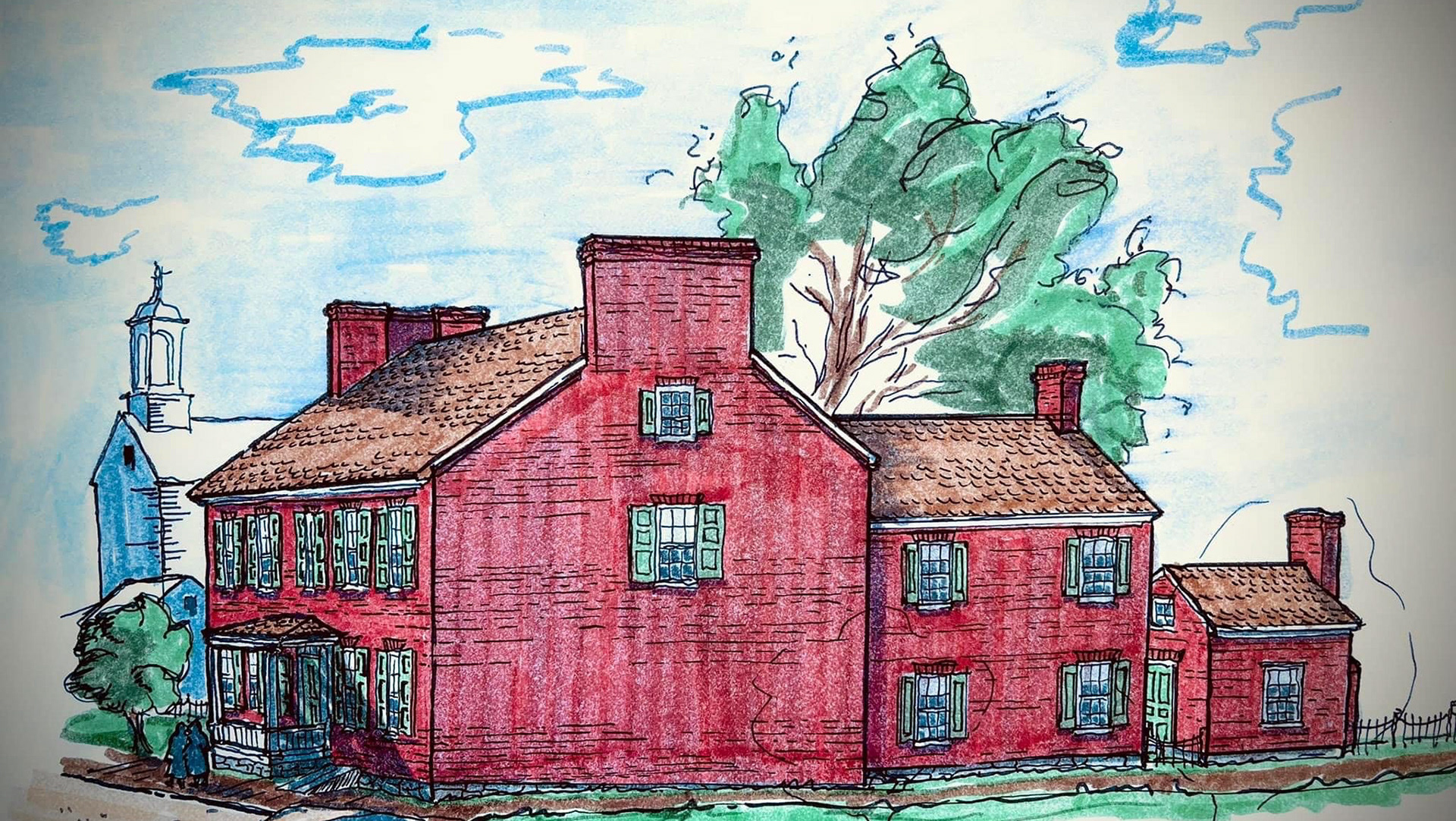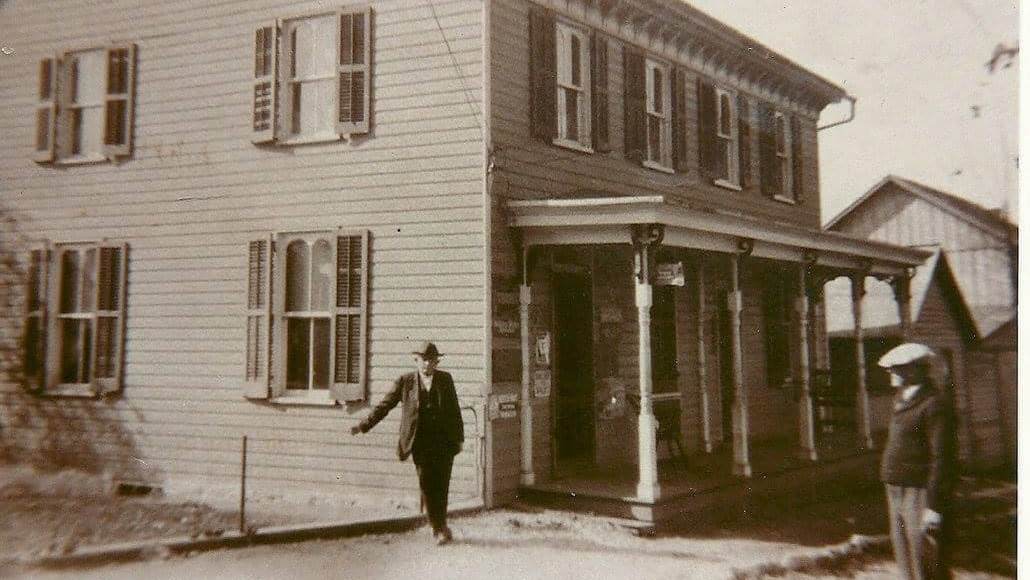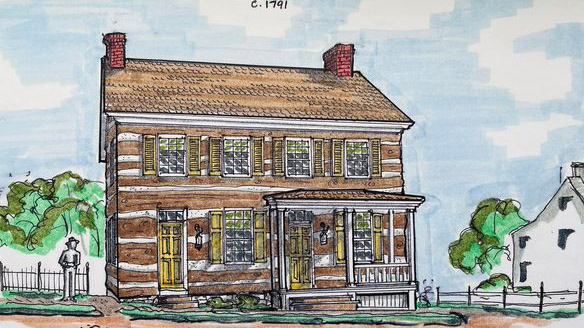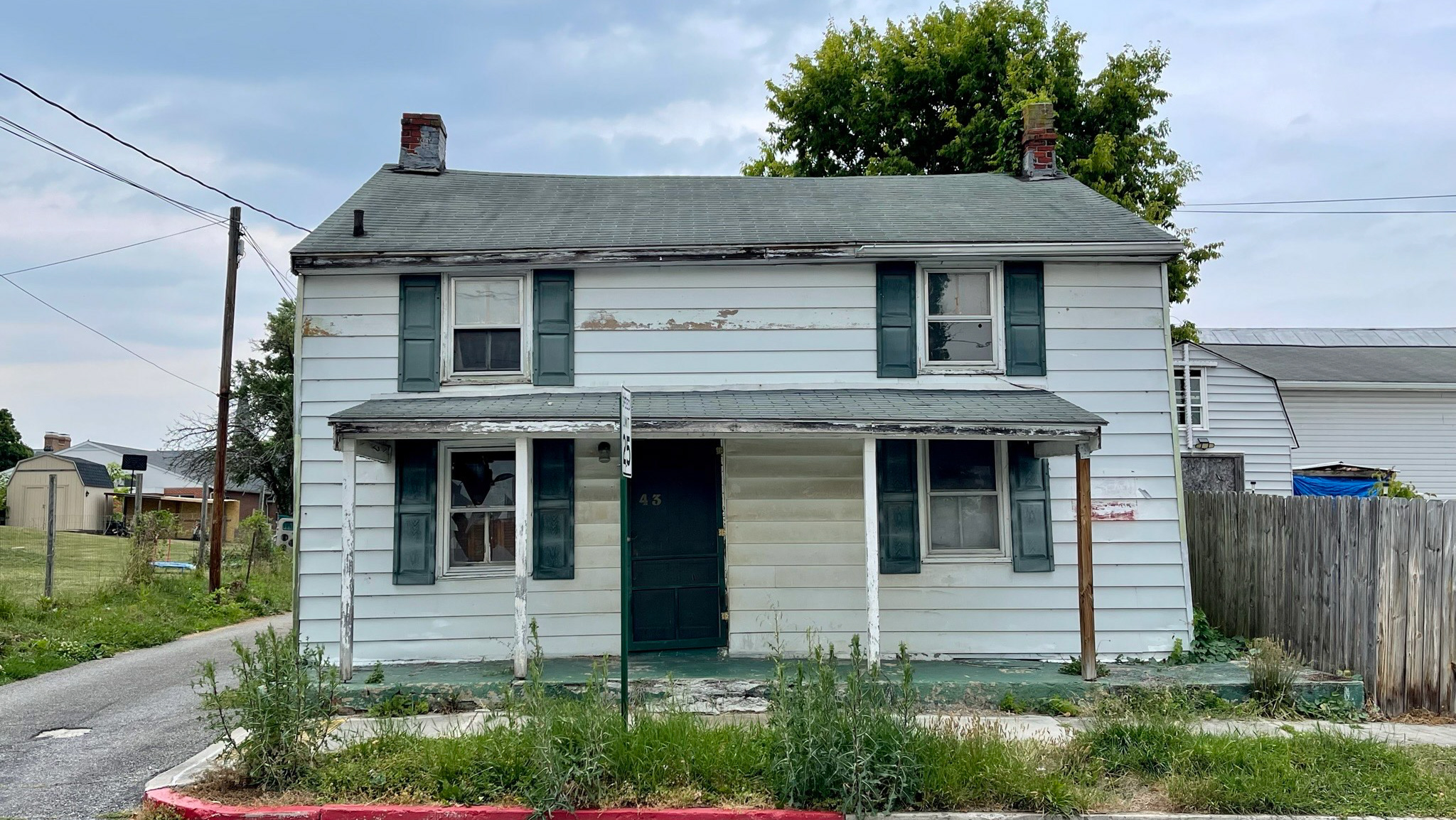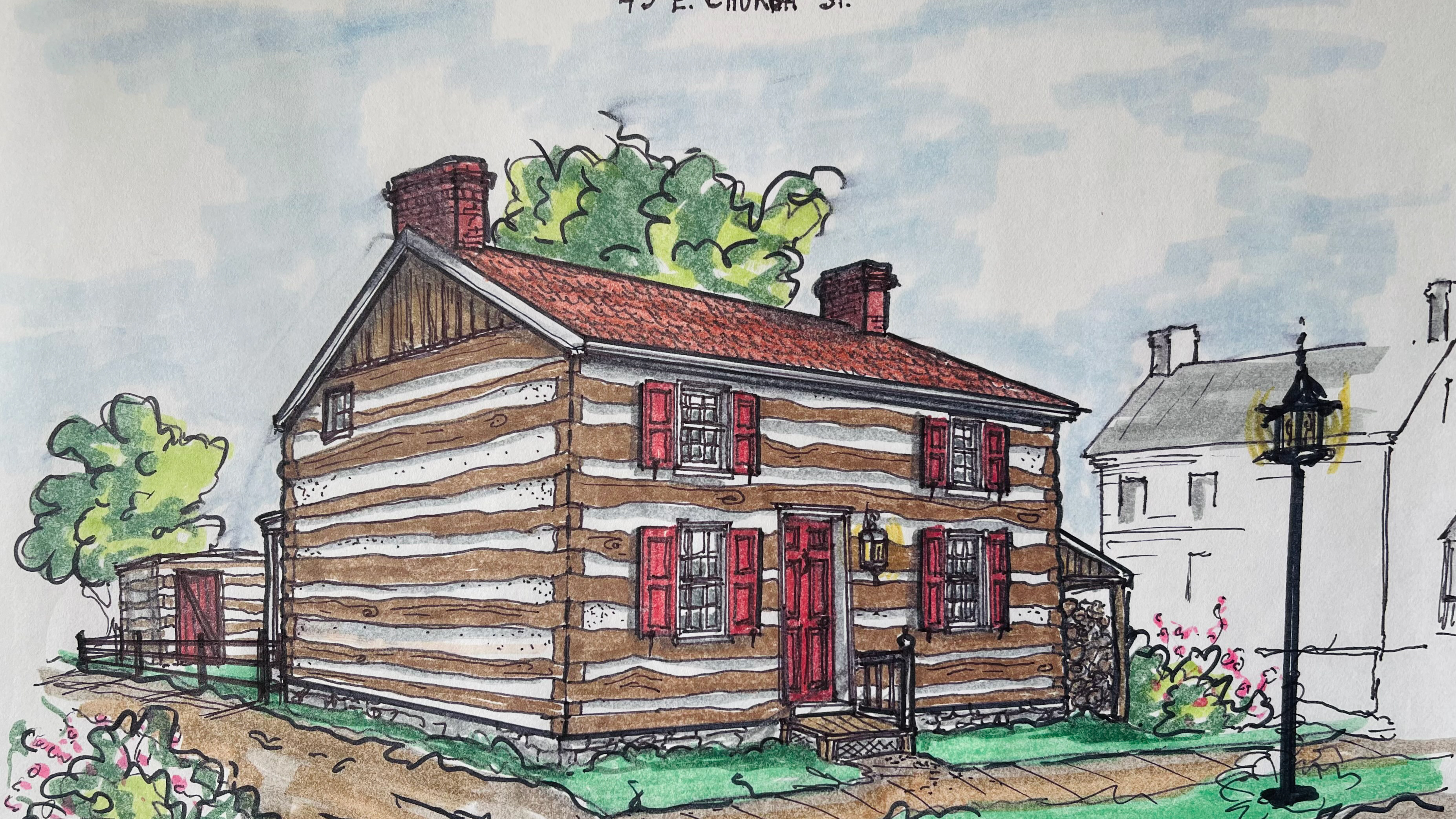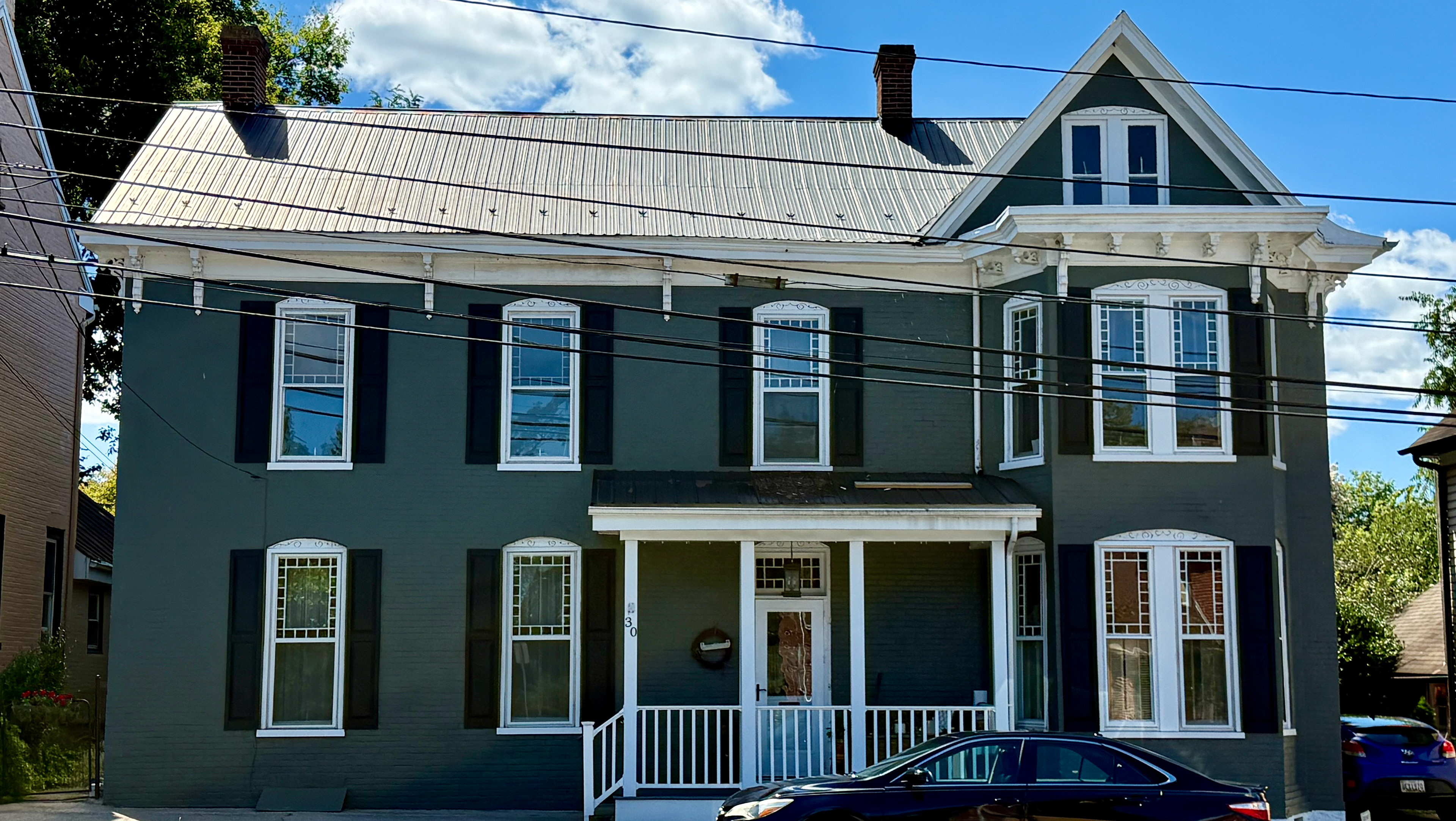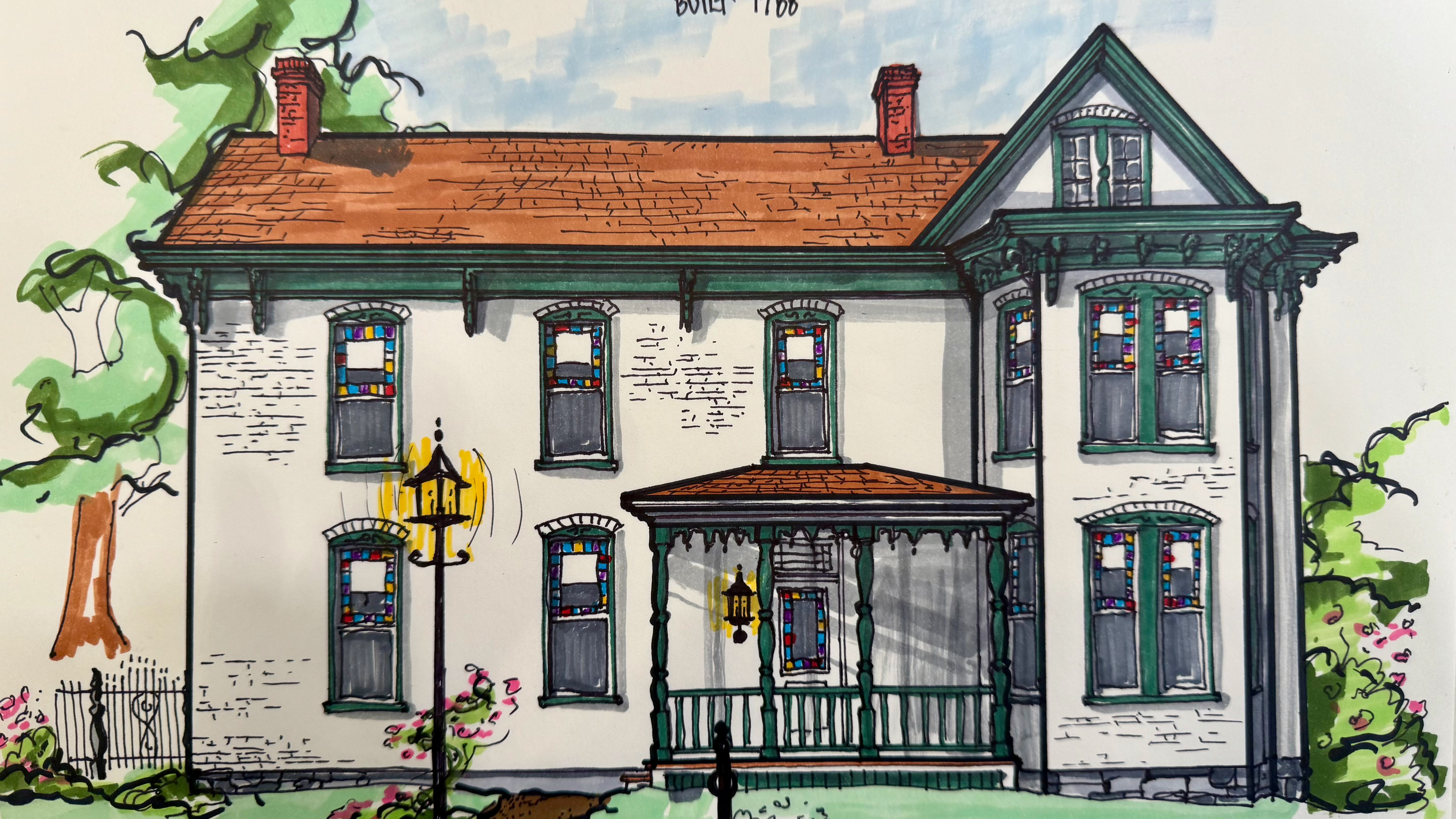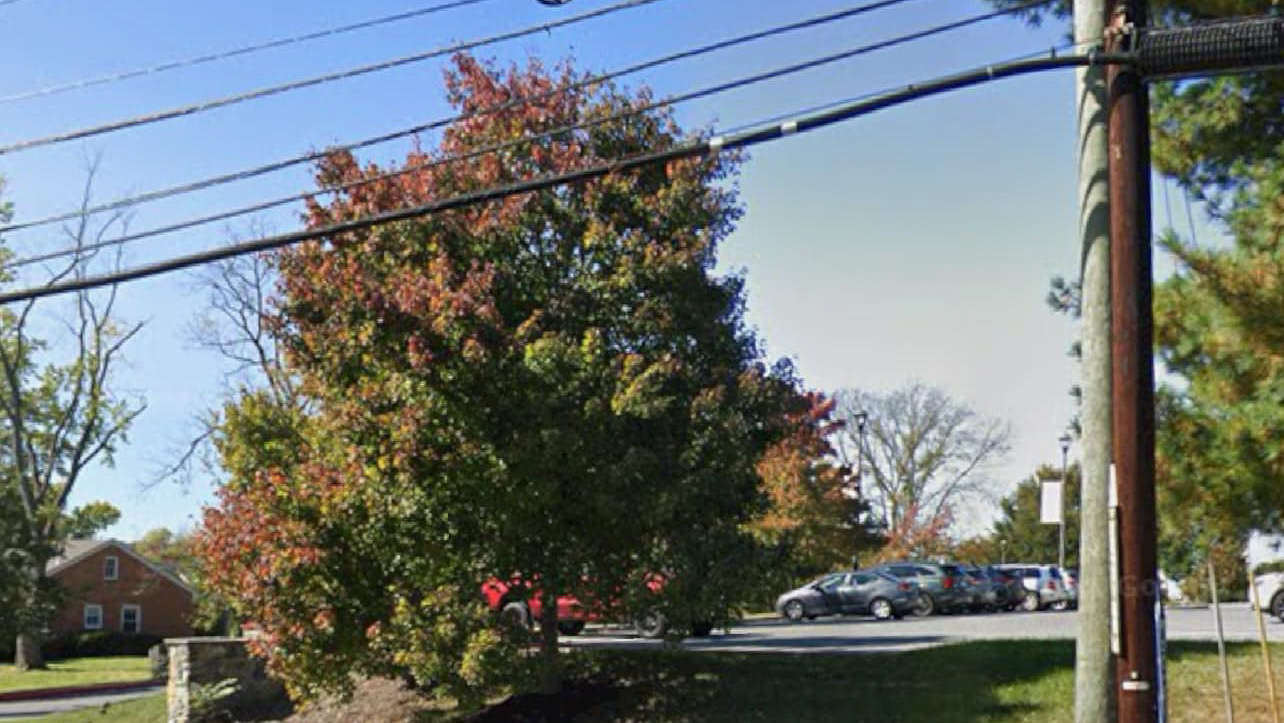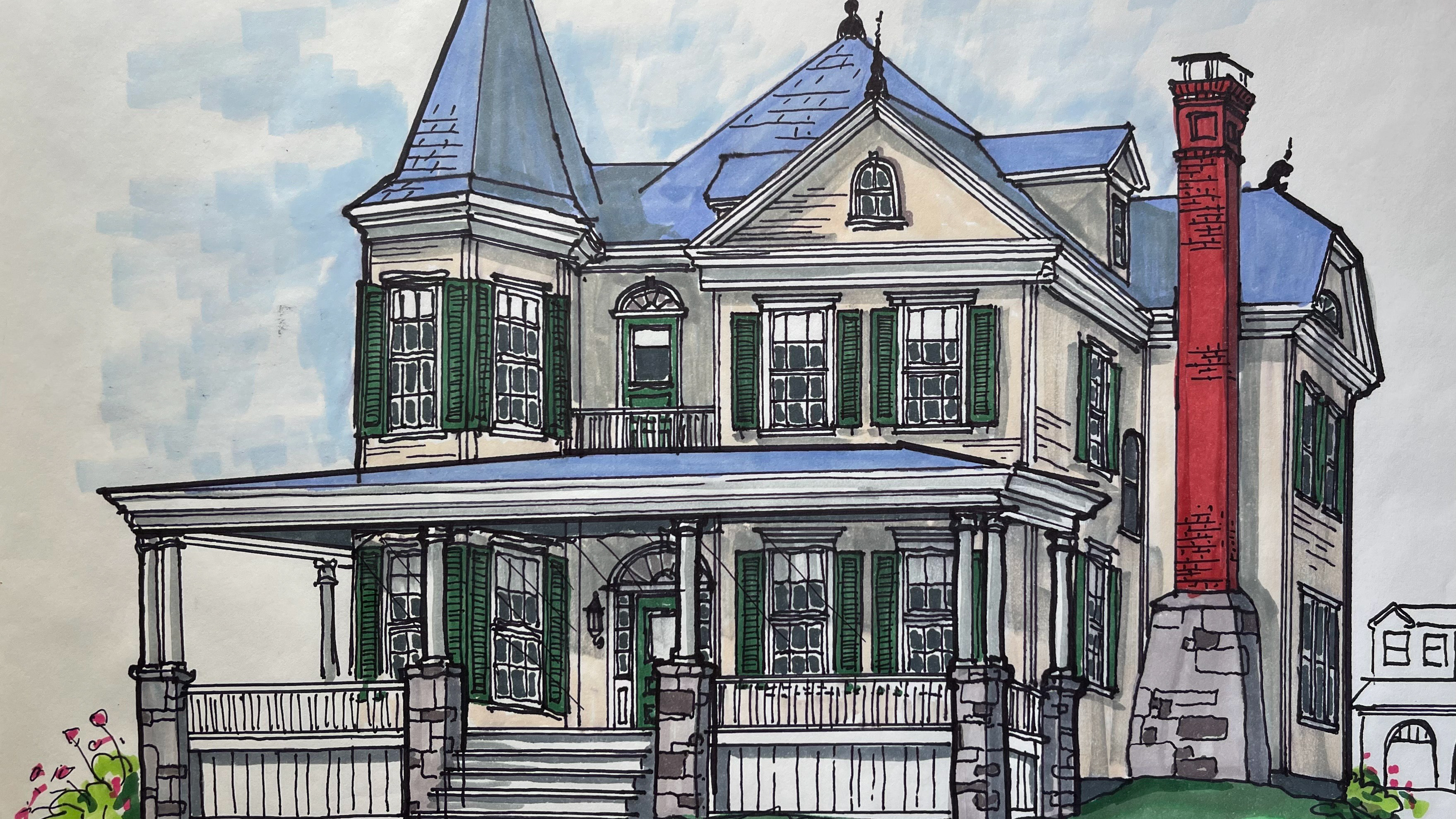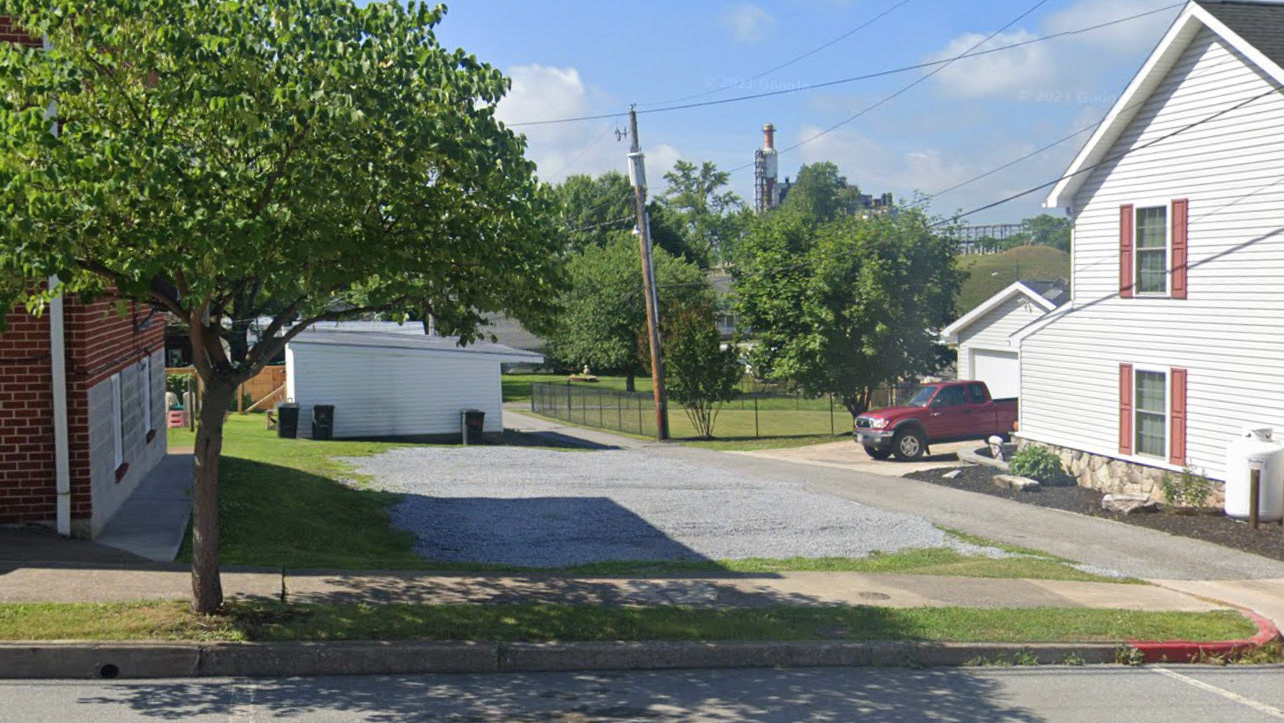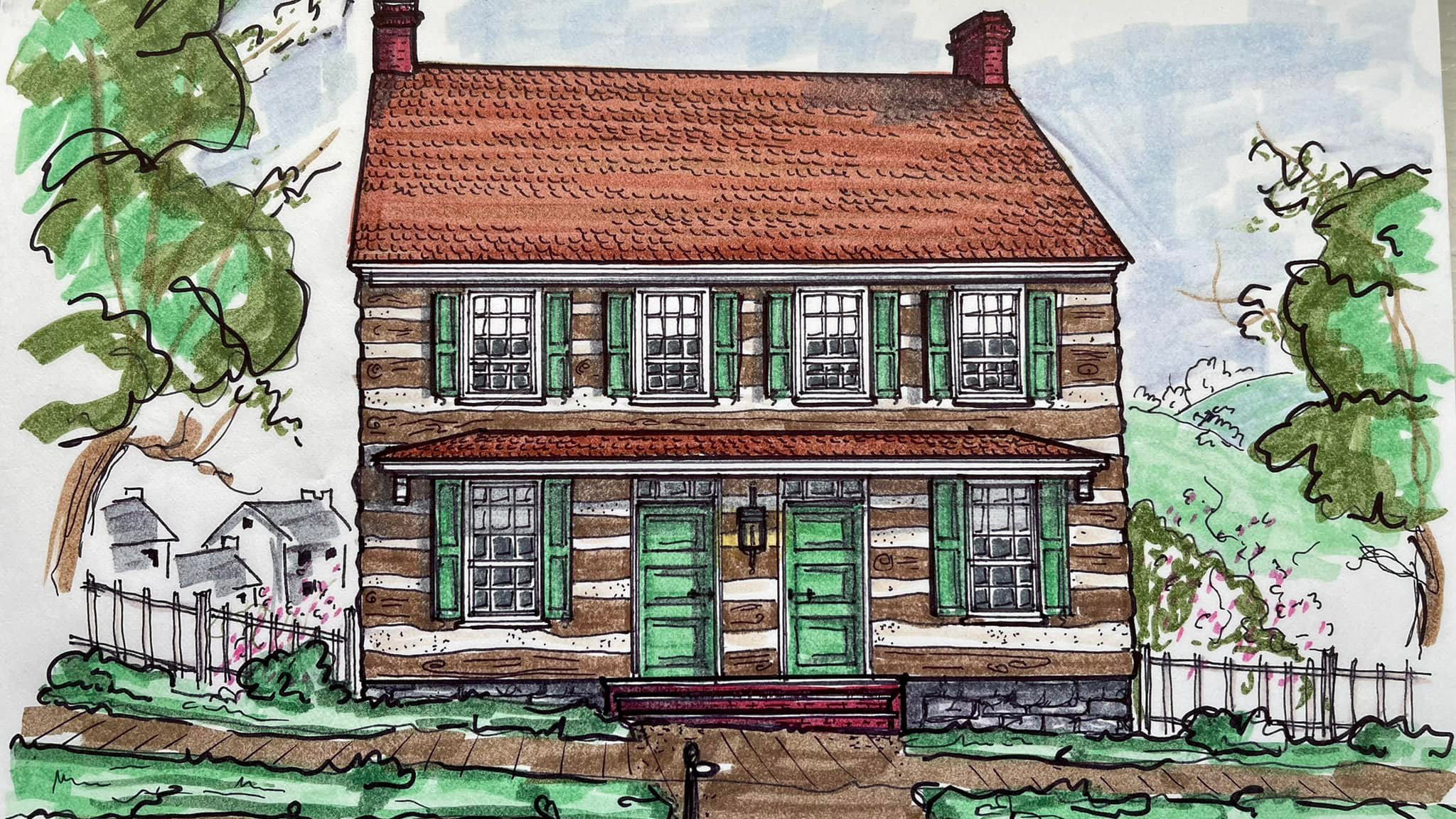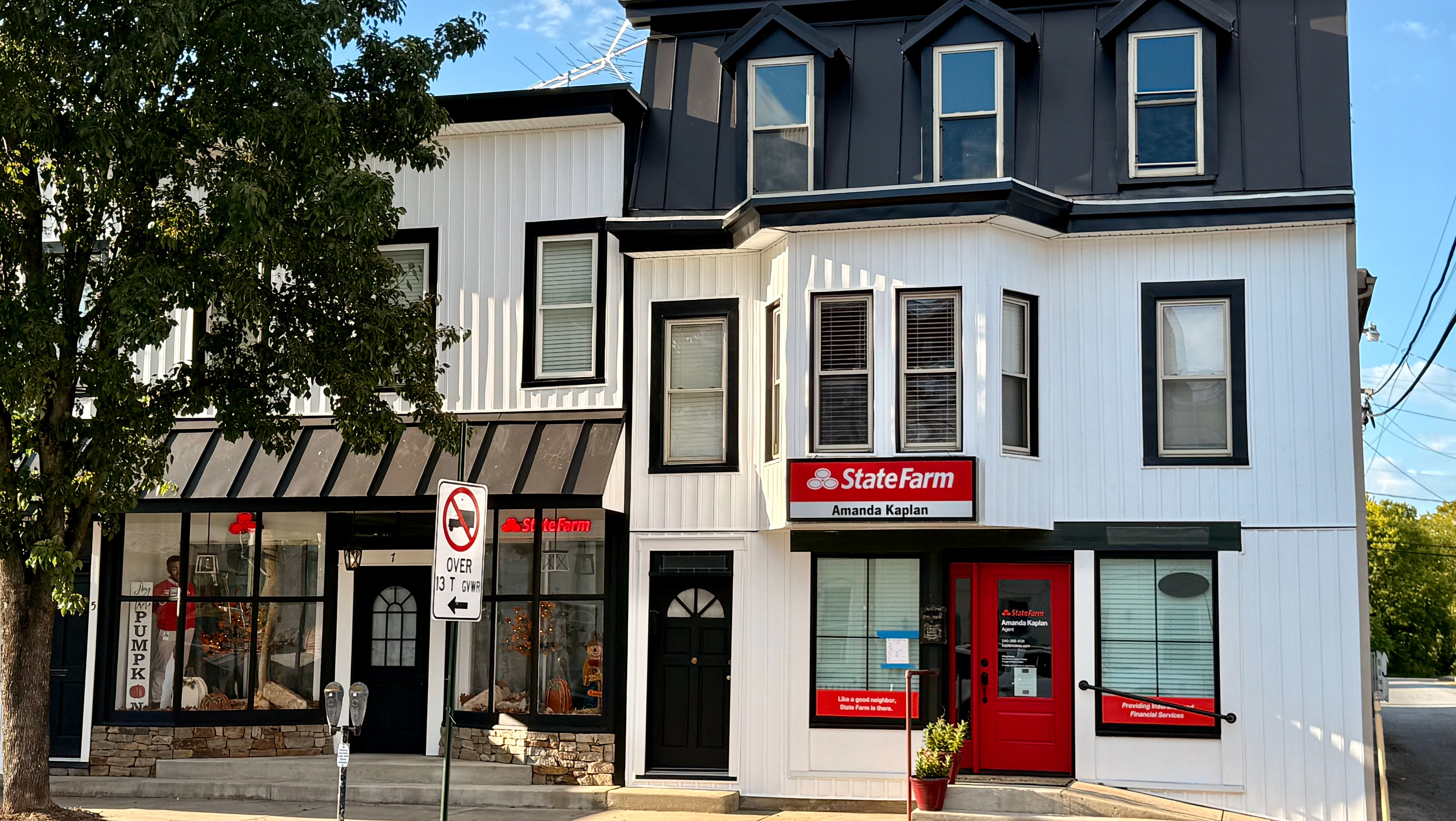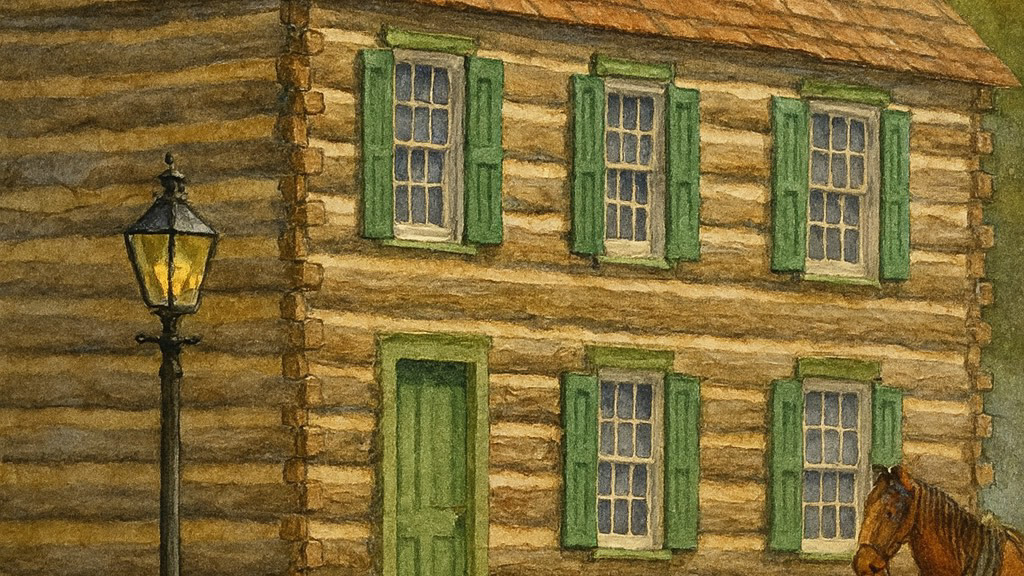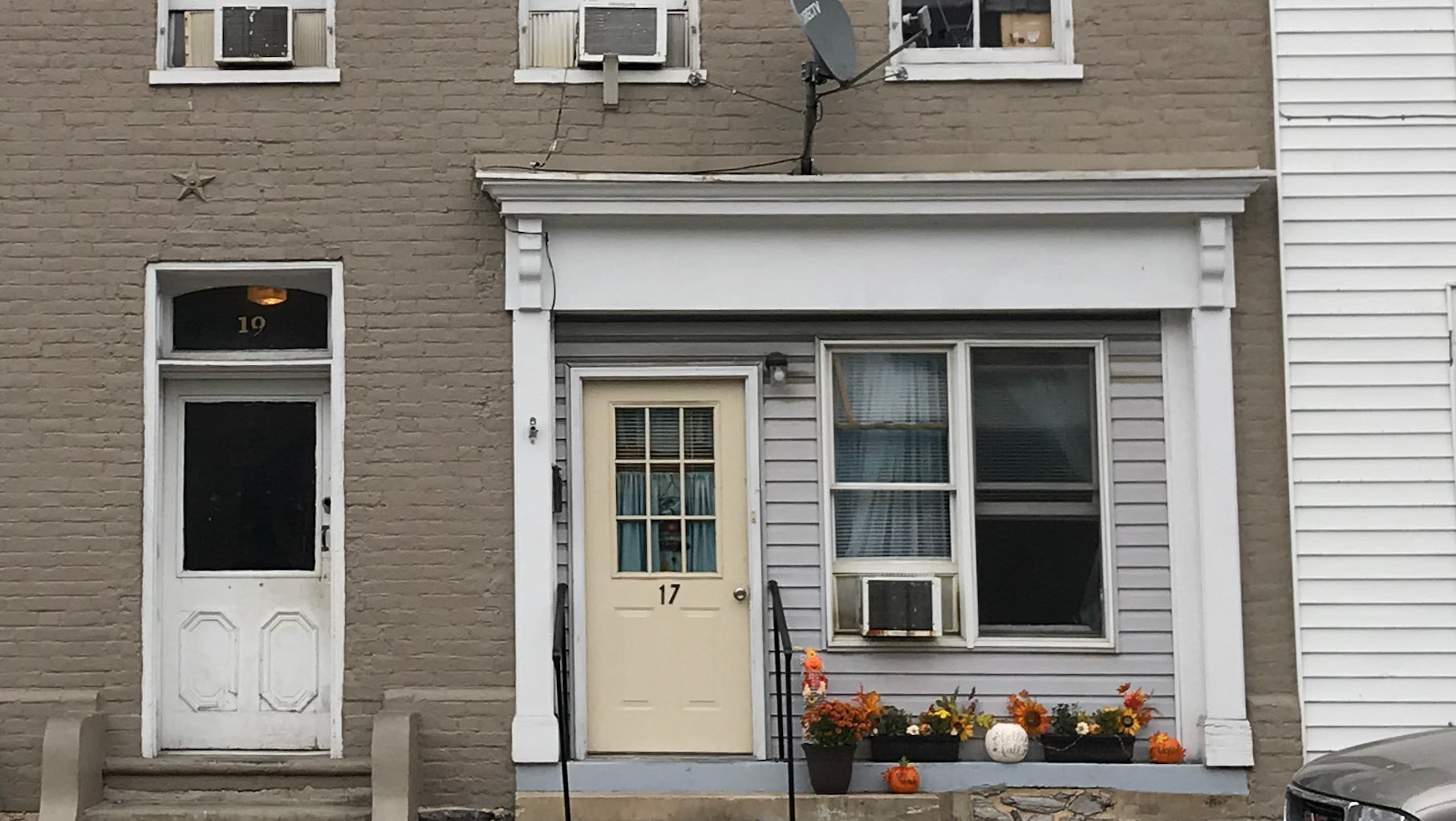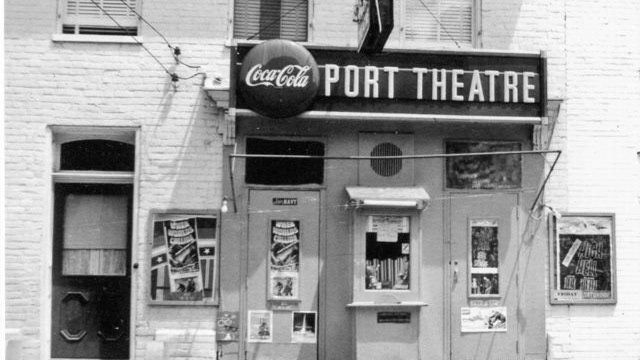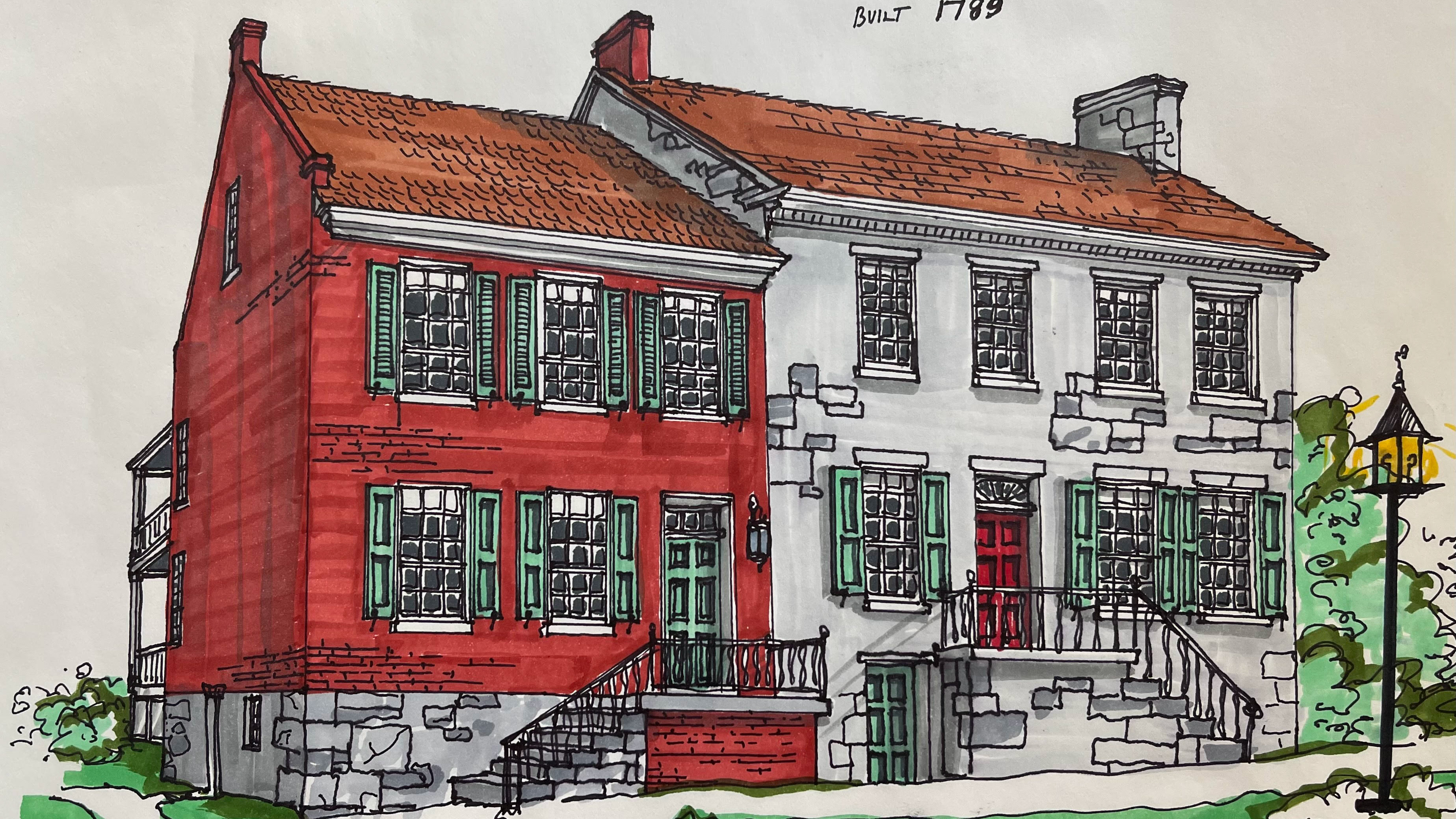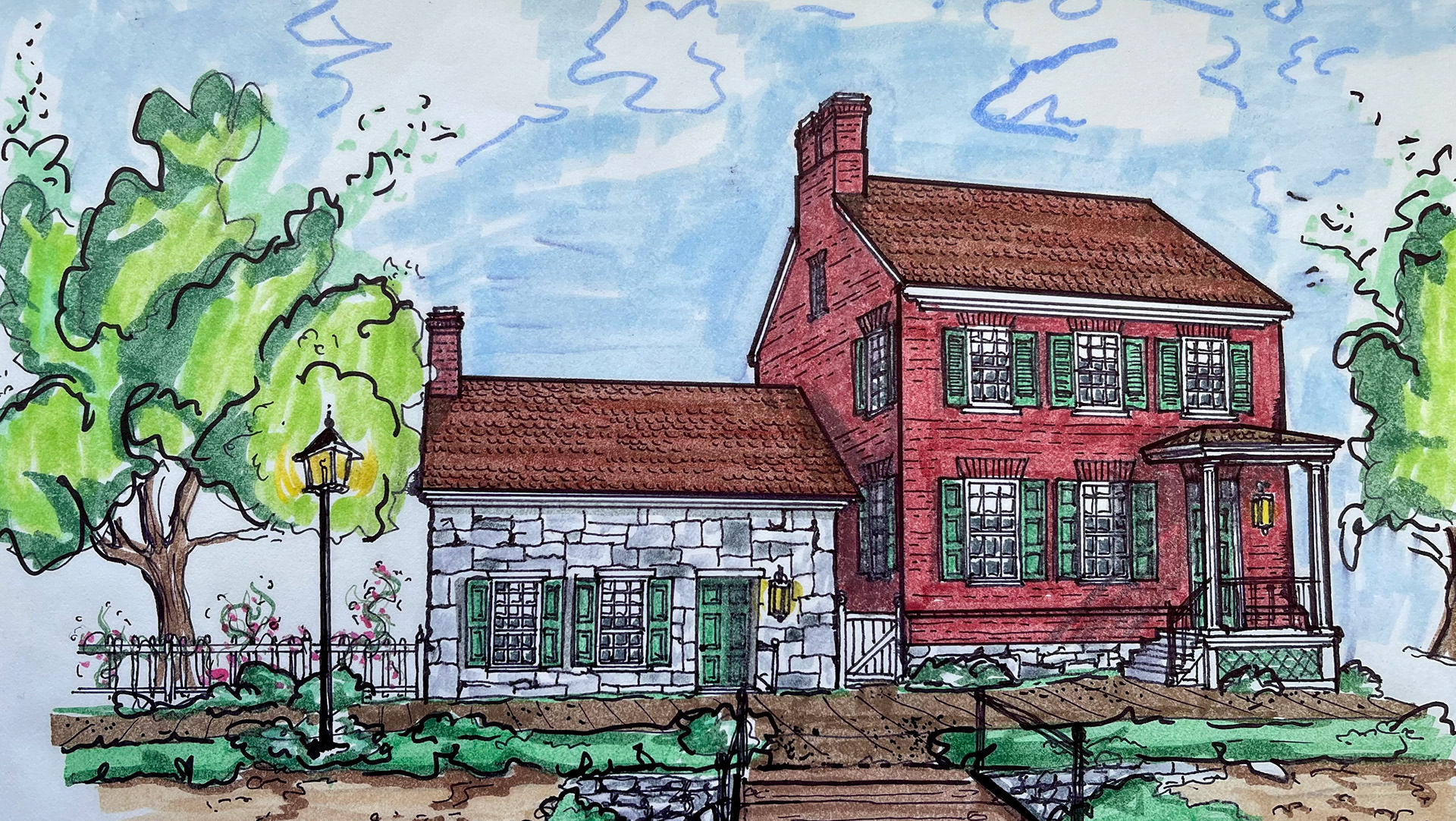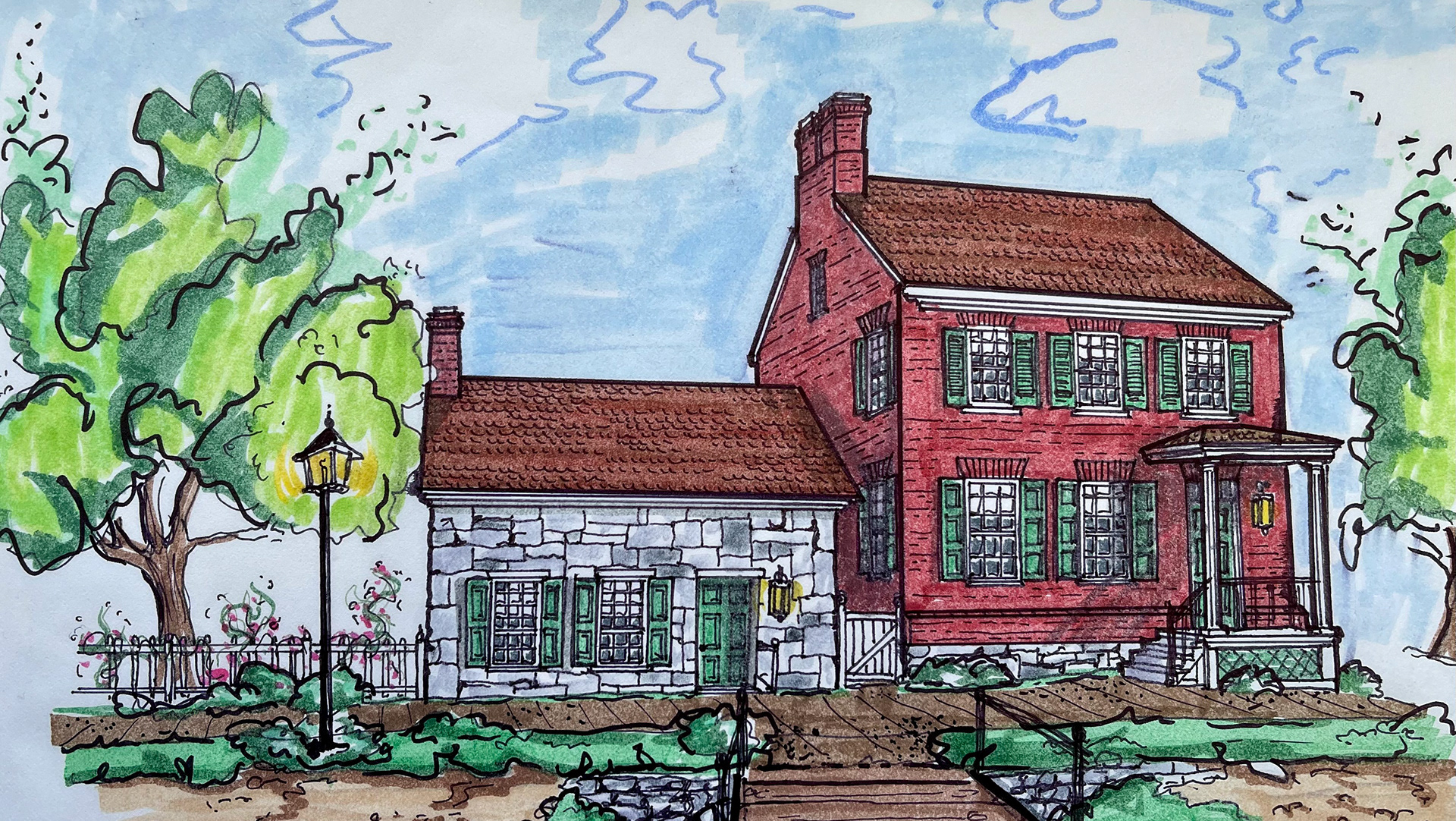On the southeast corner of the intersection of East Salisbury and Artizan Streets sits a handsome, large, federal-style house on a full-story stone foundation. Commanding the eye, the home sits high above the sidewalk, quietly presiding over the intersection. The frame house is dressed in original cypress siding painted in a tasteful taupe with cream accents. The home retains its original windows and employs a large wrap-around porch added on in the later 19th century. Three massive chimneys pierce the roof that originally served 6 fireplaces on the main floors and 3 in the basement.
Original lot 181 was first leased by Daniel Weisel in 1811 from Elie Williams with the standards terms in place. Daniel was required to build a house, fencing, a well, etc. within 3 years. This lease proves that at that time, no improvement was present. Daniel Weisel was a major player in early Williamsport and lived on West Salisbury Street just behind the Town Hall. His home was demolished in 1987 and was featured in one of our posts a few weeks ago. To learn more about Mr. Weisel and his significant contributions to Williamsport, please look up that story posted on July 13, 2022. Daniel fulfilled his terms and built a one-story frame house on the eastern portion of the lot in 1812 (which is still there but modified with a later second floor).
An equity case involving Elizabeth Williams to help settle the vast Williams estate in 1833 virtually ended the Williams ownership of many of the lots’ 99-year leases in town. Weisel’s estate became owner in full of lot 181 at that time. Daniel passed in 1825, but his children retained ownership of his land holdings, including lot 181. After Susanna Wiesel, Daniel’s youngest married Adam Shoop, a local lumber merchant. Adam Shoop, as trustee of Weisel's estate, sold Jerimiah Pattison lots 179, 180, and the western 2/3’s of lot 181 in 1842 for only $150, strongly suggesting no improvements were yet constructed. The small eastern portion of lot 181, including the one-story frame house, was sold to John Engert of Frederick as an investment property.
Jerimiah Pattison was a local carpenter and later merchant based here in Williamsport. Jerimiah was born in Maryland in 1802 to a family that immigrated to Maryland before 1670 from England. Jeremiah married Susan Dickey in 1818, settled in Williamsport, and began buying lots to develop immediately. Jeremiah served as the 7th Mayor of Williamsport from 1837-1839, the 11th from 1851-1852 while living in the house, and the 22nd from 1856-1857. In 1842, Jeremiah and Susan eyed the 3 lots at the intersection of Salisbury and Artizan as a place to build their dream home. As stated above, the lots were sold by Adam Shoop as trustee for the Weisel Family to Pattison. Jeremiah worked with Adam Shoop to secure $475 credit for building supplies from Shoop’s lumber business to build the large, stylish home. As collateral, Shoop put liens against the property to secure the large sum. After spending the lavish sum on the house, which sported the finest mantles, moldings, doors, hardware, and glazing available, Jeremiah could not seem to get flush. In 1846, just 3 years after building the fine home, Shoop was forced to repossess the property and sold it to a group of investors from Washington, DC for $900, a handsome sum. In an act of benevolence, the new owners allowed Pattison and his family to stay in the house, paying rent for the next 6 years. The 1850 census shows the home being used for boarding, with Jeremiah and his family listed as 2 of the 4 families living in the house. A total of 13 souls, including two widows with children and an apprentice carpenter, resided in the large home, the highest occupancy of any single dwelling in Williamsport recorded that year. A portion of the raised basement below was likely used (or intended to be used) as a shop where Jeremiah and the other carpenters produced products.
Susan Angle purchased the home and adjoining lots in 1852 for $1,000, a high price. This must have been bittersweet for Jeremiah and Susan. Susan Angle was born Susannah Fiery in Clear Spring in 1803. The Fiery family came to Maryland from Germany in the mid-1700s. She married Henry Angle, born in Franklin Co., Pennsylvania, in 1792 to a very old family. Henry was a farmer and owned a vast farm immediately outside Williamsport on the Hagerstown-Conococheague Pike. Henry and Susan had 8 children together. Henry suddenly passed away in 1846 at 54 and was buried in Riverview Cemetery. In the 1850 census, Susan's real estate value was a whopping $10,000, making her a very wealthy woman. Susan sold the farm and moved to town into the elegant Pattison house along with a staff of 5 enslaved. After Gettysburg, Susan would have witnessed the Confederate Army, led by Lee march past her front door and down Salisbury to the River; one must imagine such a sight. Susan and Henry Angle’s daughter Catherine married Frederick Christian McComas, an extremely successful merchant. Frederick, who lived at Susan's farm until the Civil War, began a mercantile in Williamsport and owned a bakery that supplied goods to the Union Army during the war. Frederick was taken prisoner by Confederate General Jubal Early in Williamsport and held for ransom until General Hunter returned captured Virginians. More about Frederick can be read here. Frederick Christian McComas (1817-1895) - Find a Grave Memorial F.C, and Catherine's children including the Hon. Louis McComas, US Congressman, Senator, and judge on the Supreme Court of DC. Louis also owned Springfield Farm, and his granddaughter, Katherine McComas Edgar Byron of the Tannery Byron's, would go on to become the first woman ever elected to congress from Maryland. Susan and Henry left quite a legacy. Susan passed in 1887 much loved and admired at the home of her Son-in-Law (F.C. McComas) in Hagerstown having outlived her husband, and 6 of her 8 children. She was survived by 15 grandchildren, and 24 great-grandchildren.
A descendent of local photographer J. D. Grove, Denny owns one of the model canal boats handmade by Grove in the 1940s
The home changed hands a few times until it was purchased in 1906 by George and Annie Hurd for $1,400. George was a very prominent citizen in Williamsport. He was born in 1857 in Alabama and began his career in Clear Spring, but moved to Williamsport where he ran Hurd’s Drugs in the Hurd Building at the corner of Conococheague and Potomac. This building is where Desert Rose operated until this year. George served as the 52nd Mayor of Williamsport from 1916-1918. Both George and Annie were immensely popular in Williamsport, and his death after a fall at the store in 1922 was sorely felt. Annie passed in 1941. A photo taken in c.1917 shows George, while mayor, larger than life in his top hat, standing at the intersection of Conococheague and Potomac near his store.
The home was purchased in 1945 by Donovan Grove after returning home from WW2. Donovan never married and used the home as a rental unit. Mr. Grove was involved in the South End Development in Williamsport that included Greenlawn Cemetery where he is now buried. The house was sold to Patsy Landis in 1972, and then back to the Grove Family when Dennis Grove and Jennifer Michaels purchased the home in 2013.
The prominent Grove family has called Williamsport home for more than 150 years. The Grove’s owned a Funeral business in Hancock and Williamsport and were owners of the South End Development Company which built much of the town south of Frederick Street. Dennis or “Denny” as he is known here is the current Assistant Mayor, and how appropriate as the men that have owned this home have served many terms as mayor and in town government. Jennifer is a retired Interior Designer and serves in town government. When they purchased in 2013, the house was showing its age, and in desperate need of restoration. Excited to be back in his hometown and Jennifer to breathe life back into a stunning old home, they tackled the project together. New systems have been installed, including HVAC, plumbing, and electrical. Denny, who is very talented with woodworking, has replicated and installed missing molding where needed, restored plaster, and even built period-appropriate outbuildings to house their supply of garden tools. With her classic good taste, Jennifer has chosen beautiful furnishings for the period rooms and selected lovely period-appropriate colors that bring the home back to its former glory. Denny and Jennifer enjoy travel, being active in the local community, restoring their home, and working together in their lovely garden.
Denny and Jennifer's outstanding work restoring their beautiful old home is a gift to the town they love so much. This home is an essay on how to cherish an old home's heritage and architectural integrity while still updating and enjoying the comforts of today. Williamsport’s history and architectural treasures are important and should be protected.

